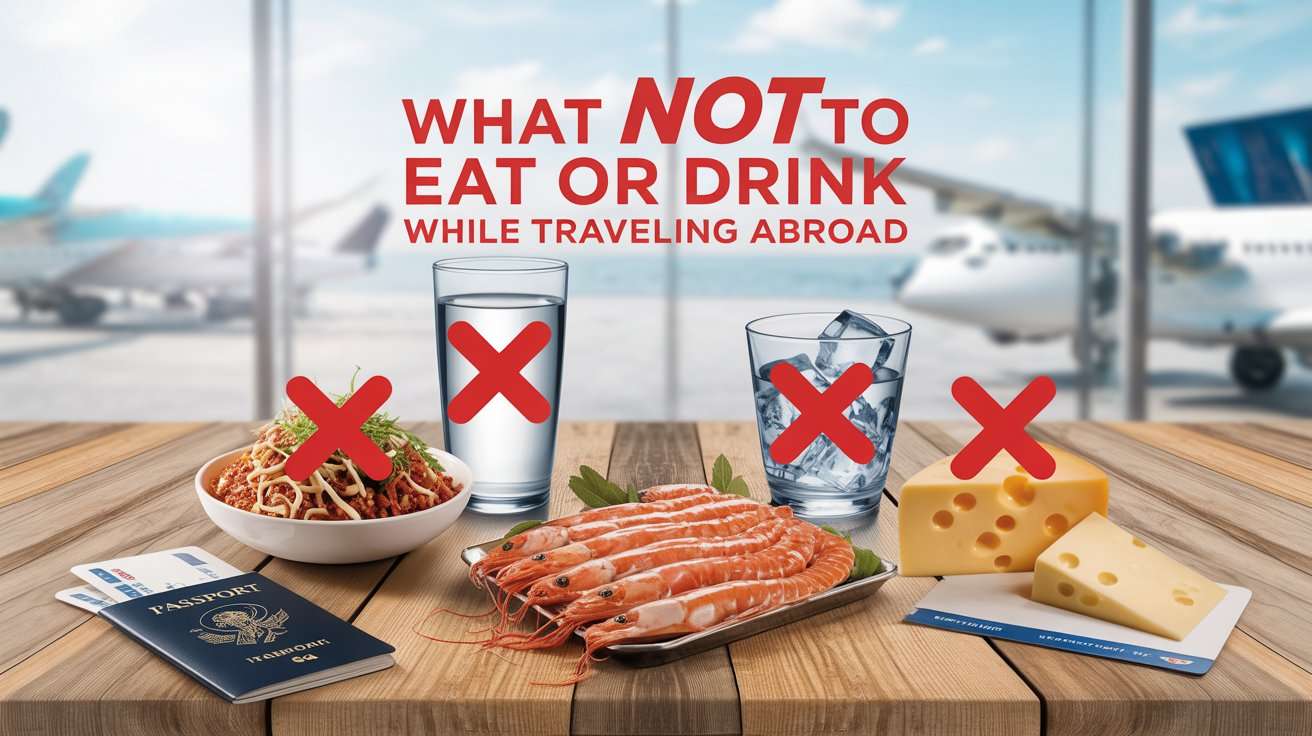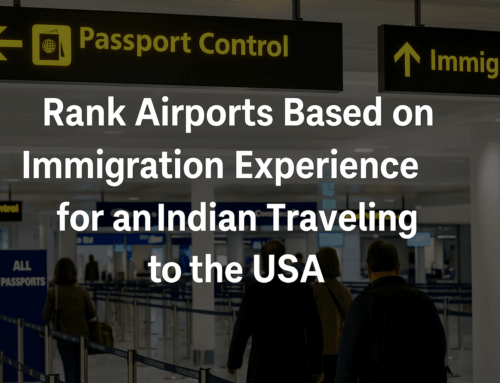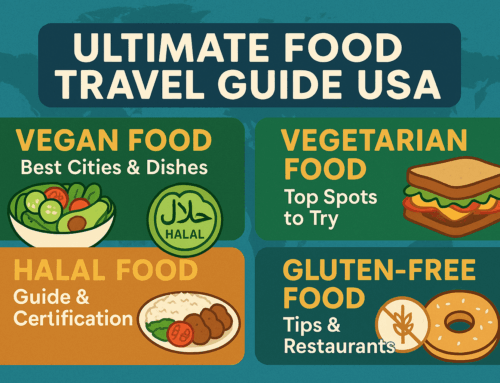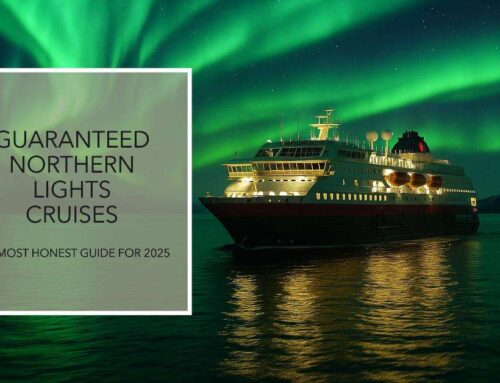What Not to Eat or Drink While Traveling Abroad
Contents
- 1 What Not to Eat or Drink While Traveling Abroad
- 1.1 What Not to Eat or Drink While Traveling Abroad: Tap Water
- 1.2 What Not to Eat or Drink While Traveling Abroad: Unsafe Street Food
- 1.3 What Not to Eat or Drink While Traveling Abroad: Raw or Undercooked Seafood
- 1.4 What Not to Eat or Drink While Traveling Abroad: Ice Made from Tap Water
- 1.5 What Not to Eat or Drink While Traveling Abroad: Unpasteurized Dairy
- 1.6 Medicines to Pack While Traveling Abroad
- 1.7 Additional Tips on What Not to Eat or Drink While Traveling Abroad
- 1.8 Frequently Asked Questions (FAQs)
Traveling abroad is always exciting, but as a travel agency, we hear plenty of stories from our clients about food and drink choices that either made or broke their trips. Over time, we’ve gathered lots of insights and feedback on what not to eat or drink while traveling abroad. Here’s our combined knowledge on what you shouldn’t eat or drink while traveling abroad—and practical alternatives so you can enjoy your trip without worry.
What Not to Eat or Drink While Traveling Abroad: Tap Water
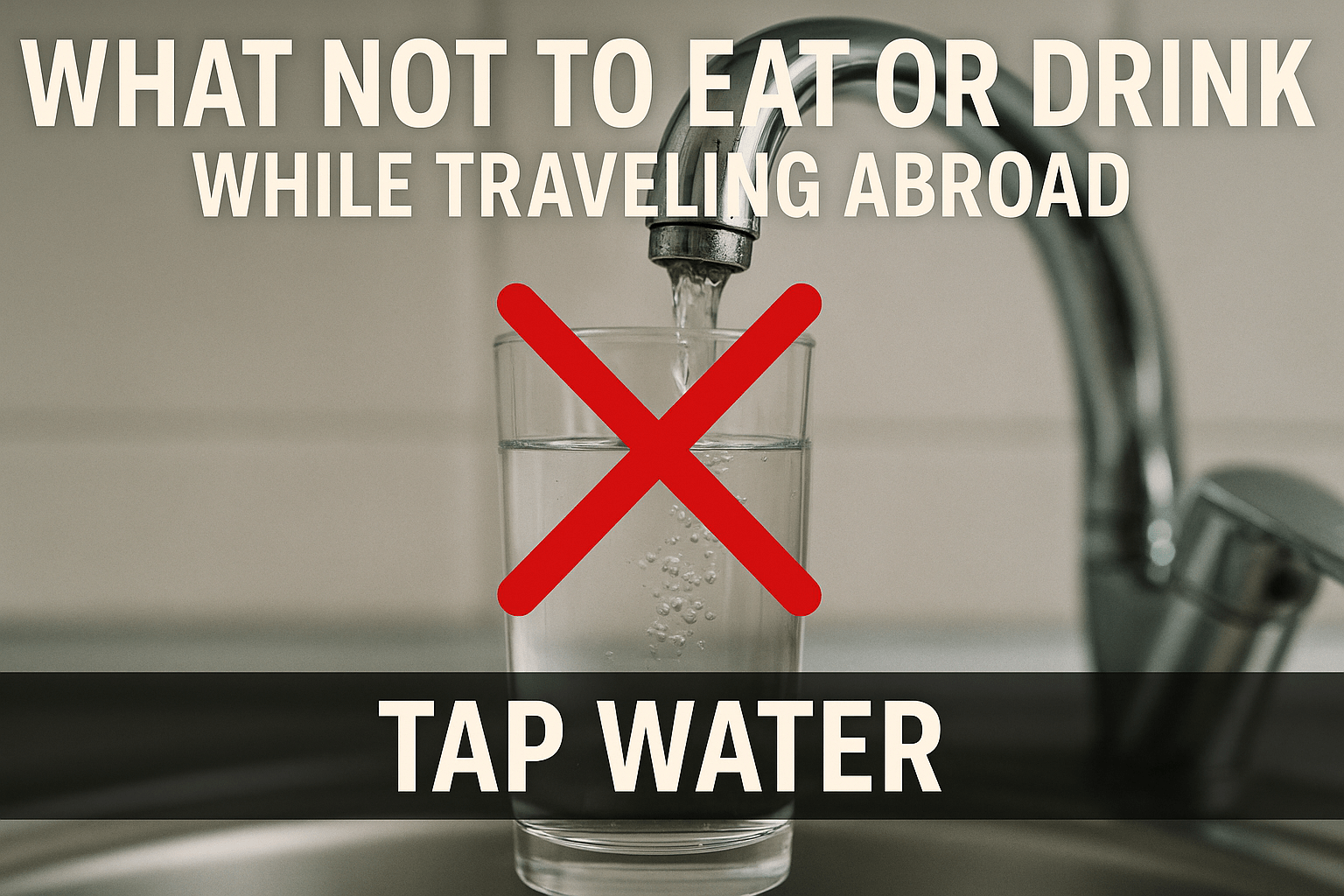
It might sound obvious, but tap water is a common culprit for traveler’s stomach issues. Even if locals drink the water, your digestive system might not handle it.
Alternatives: Always opt for bottled water or carry a portable water purifier or purification tablets. Brands like LifeStraw are handy to ensure your water is safe.
What Not to Eat or Drink While Traveling Abroad: Unsafe Street Food
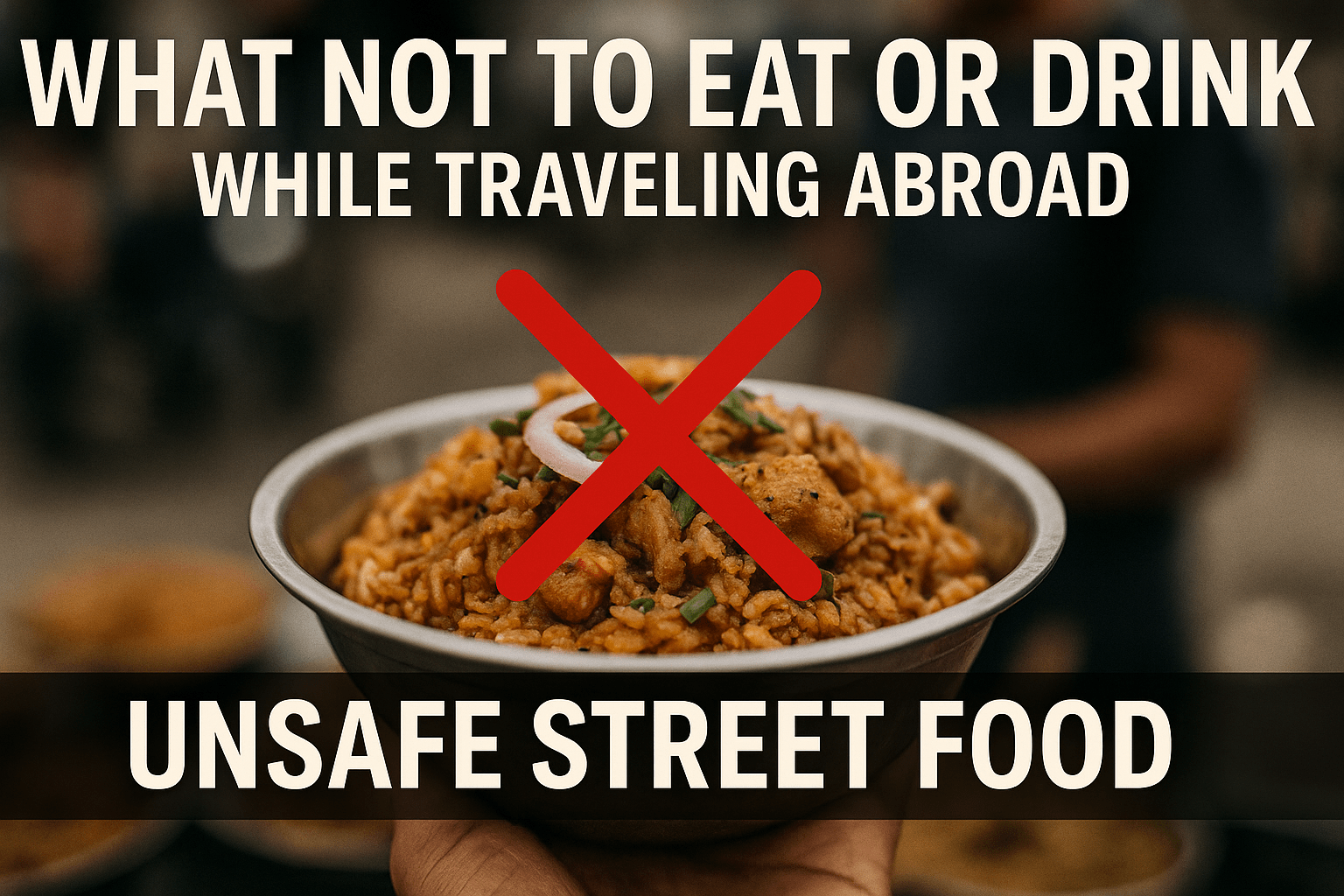
Street food is delicious and tempting, but not all stalls are equally safe.
Alternatives: Stick to street food vendors that have long lines and plenty of locals. Popular spots mean food is freshly cooked and constantly replenished, minimizing health risks.
What Not to Eat or Drink While Traveling Abroad: Raw or Undercooked Seafood
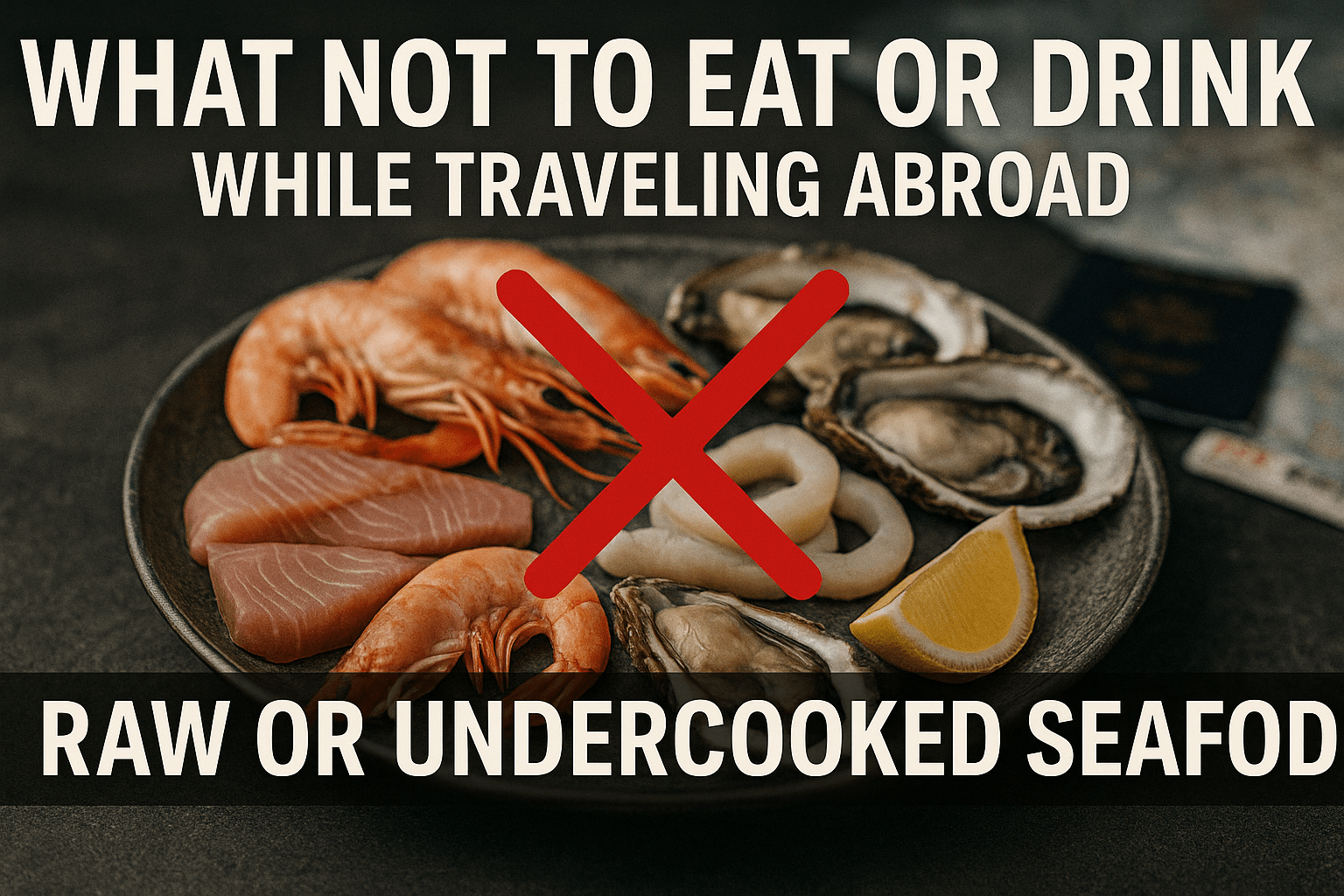
Raw seafood, especially in warmer climates or less hygienic locations, can quickly cause food poisoning.
Alternatives: Choose fully cooked seafood dishes or restaurants known for proper storage and preparation standards. When in doubt, grilled or steamed seafood is safest.
What Not to Eat or Drink While Traveling Abroad: Ice Made from Tap Water
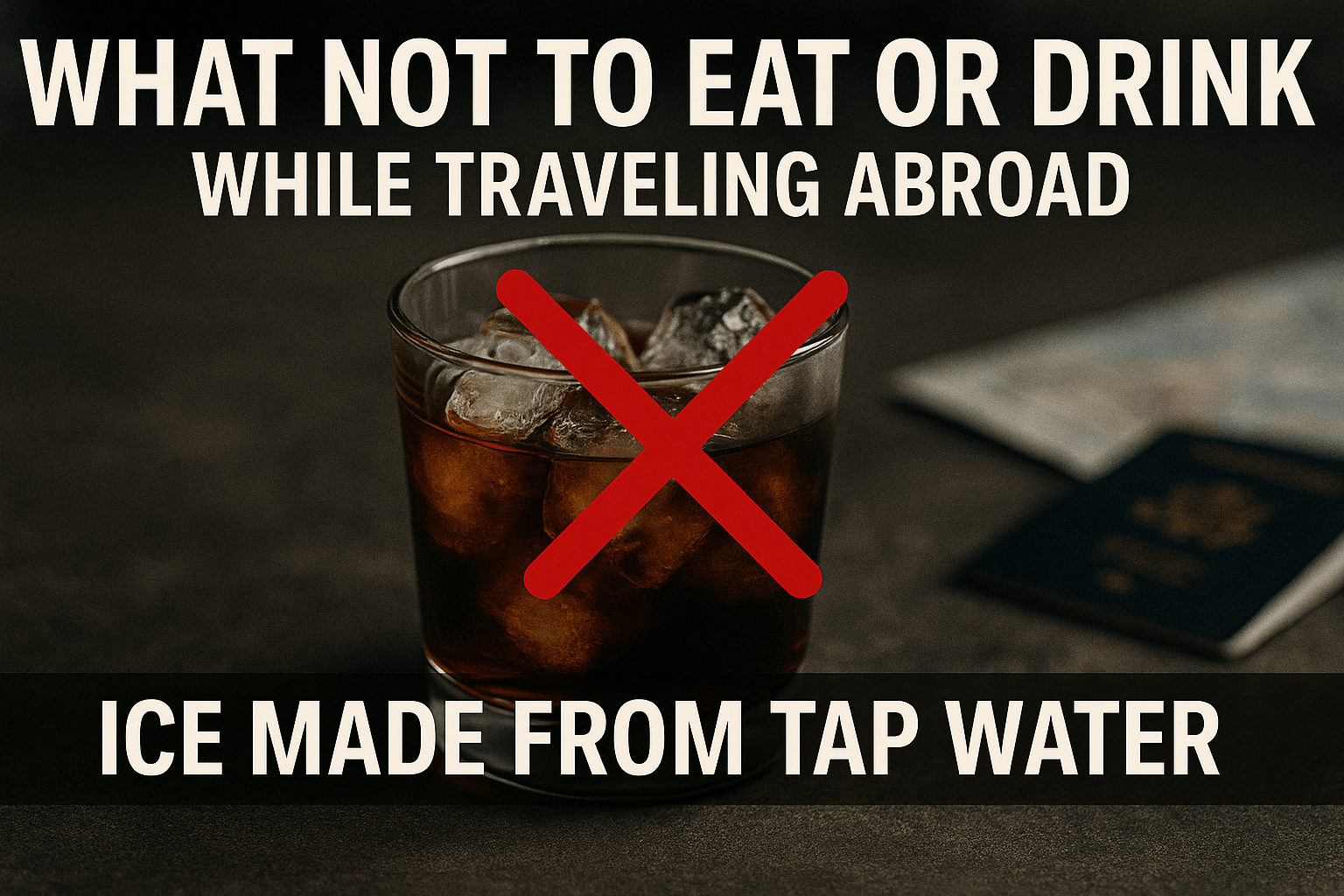
Ice cubes can seem harmless but often are made from local tap water, posing health risks.
Alternatives: Request drinks without ice or confirm if the ice is made from filtered or bottled water. A chilled bottled beverage is always a safer bet.
What Not to Eat or Drink While Traveling Abroad: Unpasteurized Dairy
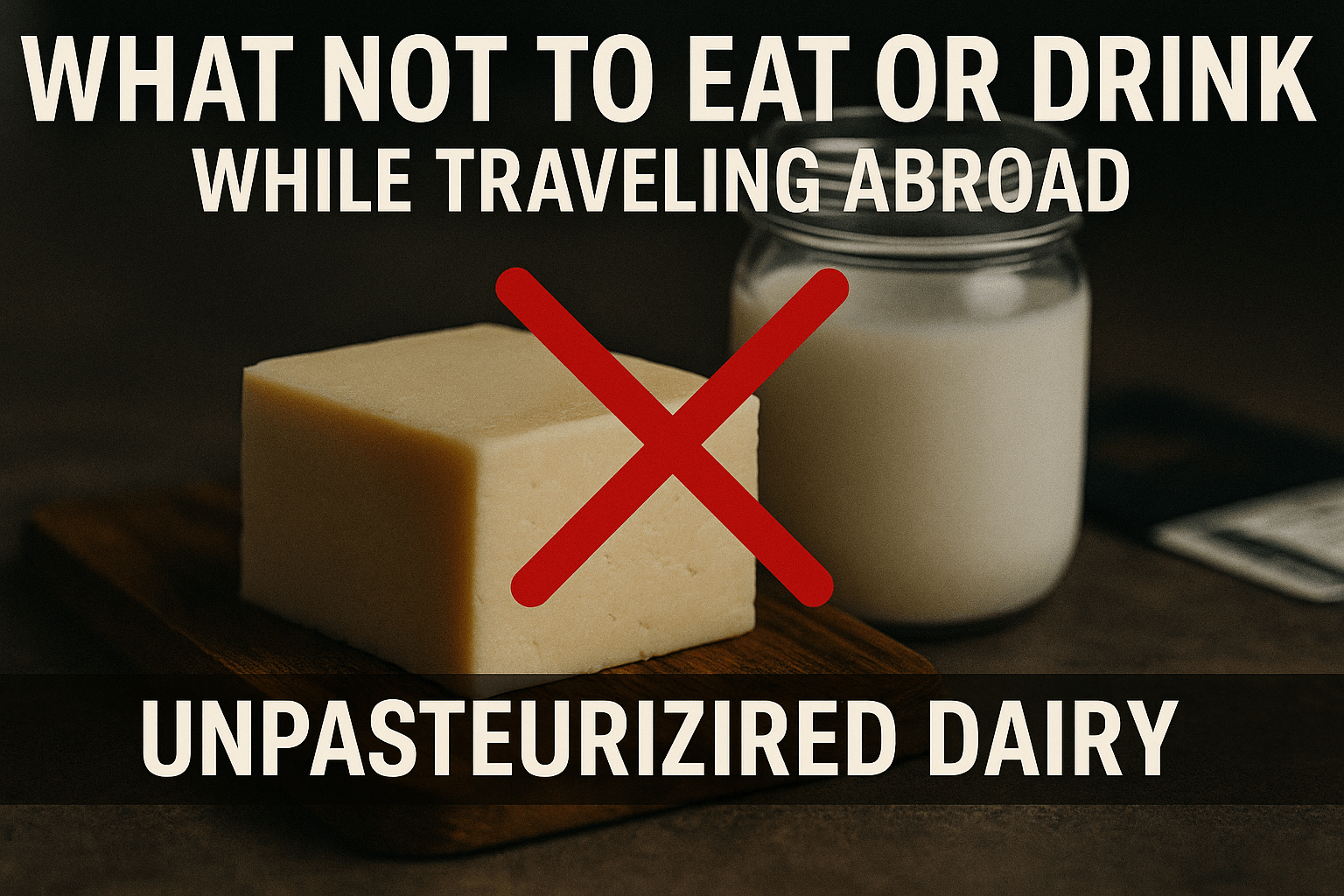
Cheeses, milk, or yogurt made from unpasteurized dairy products can contain harmful bacteria.
Alternatives: Opt for pasteurized dairy products clearly labeled on packaging. If you’re unsure, dairy substitutes like almond or soy milk products are great options.
Medicines to Pack While Traveling Abroad
Even if you follow all these guidelines, it’s wise to be prepared:
- Antidiarrheal medications like Imodium or Pepto-Bismol.
- Oral rehydration salts to quickly recover if you do experience issues.
- Digestive enzyme tablets or probiotics to help your stomach adapt to unfamiliar foods.
Additional Tips on What Not to Eat or Drink While Traveling Abroad
- Always wash your hands or carry hand sanitizer.
- Eat fruits and vegetables you can peel yourself or have been cooked thoroughly.
- Check local recommendations or ask our travel experts for safe dining options.
Frequently Asked Questions (FAQs)
- Is bottled water always safe abroad?
Generally yes, but ensure the seal is intact. - Can I eat peeled fruits safely?
Yes, fruits you peel yourself are generally safe. - Should I avoid salads abroad?
Avoid unless you’re confident they’re washed in purified water. - What about coffee and tea abroad?
Hot beverages made with boiling water are usually safe. - Are international brands always safer?
Often yes, international brands usually follow stricter safety standards. - Is street food always risky?
Not always. Look for busy stalls with many locals. - Should I trust ice at hotels?
Confirm with the hotel if ice is from purified water. - Can cooked food still cause illness?
Rarely, but improper storage after cooking can be risky. - Should I avoid local dairy products completely?
Only avoid unpasteurized ones. - Can probiotics really help prevent illness?
They can help your digestive system adapt. - Are medications available abroad easily?
Availability varies, so bring essentials from home. - Can children follow these tips too?
Absolutely, these tips are beneficial for all ages. - Is hand sanitizer sufficient for cleanliness?
Hand sanitizer is effective, but soap and water are preferable. - What foods are safest to eat abroad?
Cooked foods, bread, peeled fruits, and packaged snacks are safest. - Should I carry my own snacks?
It’s a great backup, especially for dietary restrictions. - What should I do if I feel sick abroad?
Rest, stay hydrated, and seek medical help if symptoms persist. - Are restaurant standards abroad reliable?
Standards vary; check reviews and recommendations. - Is it safe to drink alcohol abroad?
Yes, in moderation and from trusted sources. - Do travel agencies provide food safety tips?
Yes, reputable agencies provide thorough advice. - Is it safe to brush teeth with tap water abroad?
Ideally, use bottled water, especially in high-risk areas. - Can I eat local specialties safely?
Yes, if they are fully cooked and served hot. - What if I accidentally drink unsafe water?
Monitor for symptoms and take precautionary medicine if necessary. - Should I avoid ice cream abroad?
Stick to packaged or reputable branded products. - Is street food cheaper abroad?
Usually yes, but weigh safety over savings. - Can boiled water replace bottled water?
Yes, boiling water for at least one minute kills most pathogens.
By keeping these tips in mind, you’ll confidently enjoy all the amazing foods and drinks your destination has to offer without unwanted surprises. Safe travels!
Disclaimer:
The information provided in this blog is based on collective travel experiences and general safety advice. Desmo Travel does not offer medical advice. Please consult your doctor before taking any medications or making health-related decisions while traveling. Food safety conditions may vary by country and situation — always use your best judgment.
Stay connected with us for more travel tips, updates, and exclusive deals:
🌐 Website: www.desmotravel.com
📞 Call Us: (732) 234-3740
📧 Email: info@desmotravel.com
Follow us on social media:
📸 Instagram: @desmotravel
📘 Facebook: Desmo Travel
🐦 Twitter: @desmotravel
📌 Pinterest: Desmo Travel
🎥 YouTube: Desmo Travel Channel

